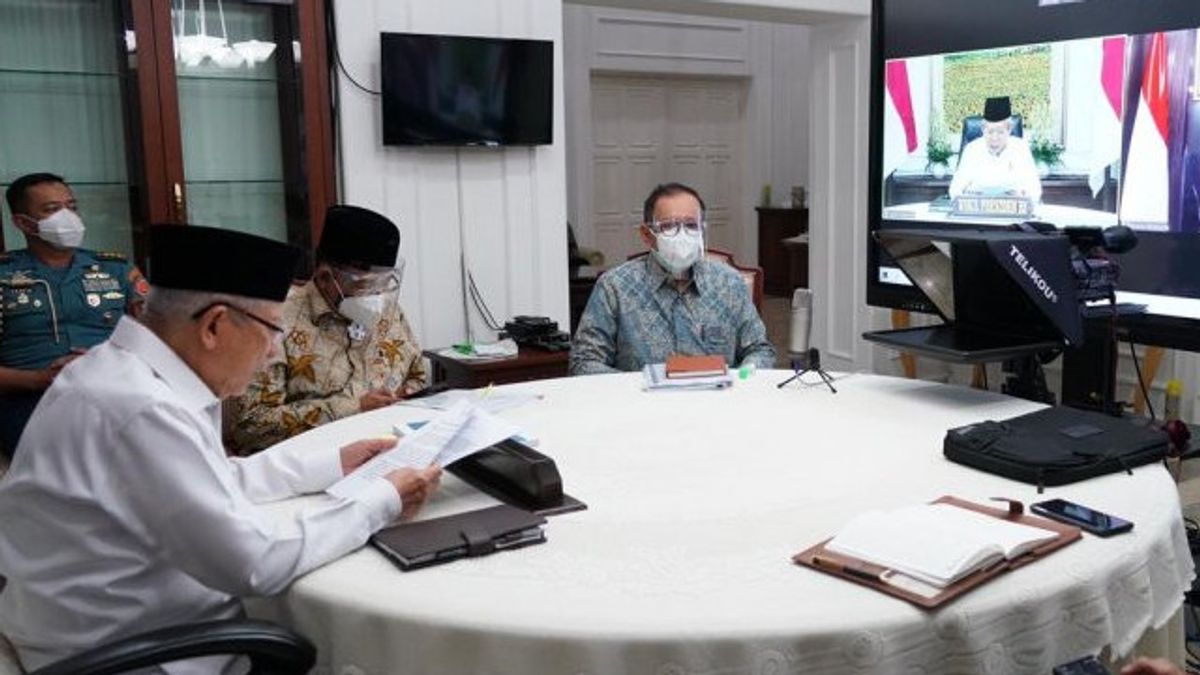JAKART - Indonesian Vice President Ma'ruf Amin ensured that the accelerated development program in Papua and West Papua runs smoothly and is able to handle areas with low welfare levels.
Ma'ruf conveyed this in his capacity as Chairman of the Steering Committee of the Integrated Coordination Team for the Acceleration of Welfare Development in the Provinces of Papua and West Papua.
"I want to ensure that the program of activities designed is to deal with areas with lagging welfare levels," said Vice President Ma'ruf in a statement in Jakarta, reported by Antara, Monday, June 21.
The Vice President stated that there are seven sectors that are the focus of Papua's development in accordance with Presidential Instruction Number 9 of 2020 concerning the Acceleration of Welfare Development in Papua Province and West Papua Province.
The focus of development in seven areas, said the Vice President, according to the Presidential Instruction is poverty, education, health, micro and small businesses, employment, infrastructure, and the achievement of the Sustainable Development Goals (SDG's).
Therefore, the Vice President asked the Ministry of National Development Planning/National Development Planning Agency (PPN/Bappenas) to map out problems and ensure that the work program was in line with regional needs.
"I want the planning made by Bappenas to be in accordance with regional conditions, in accordance with the seven focus areas so that areas with lagging welfare levels can be identified and program activities are available," he said.
Meanwhile, the Minister of National Development Planning/Head of Bappenas Suharso Monoarfa reported on the Quick Wins program as an effort to accelerate development in Papua and West Papua. The program in 2021 to 2022 will hold 231 activities.
The Quick Wins program, said Suharso, is based on these strategic sectors, including Smart Papua, Healthy Papua, Independent Papua, Connected Papua, Bright Papua, Working Papua, Proud Papua, and Green Papua.
Suharso said that the role of public relations and all related parties must be involved because public communication strategies are important in building public trust.
"Management of integrated public communication is mandatory, the need for the role of the public relations field in building public trust so that development programs are accepted, implemented, and of course receive support from all development stakeholders," said Suharso.
The English, Chinese, Japanese, Arabic, and French versions are automatically generated by the AI. So there may still be inaccuracies in translating, please always see Indonesian as our main language. (system supported by DigitalSiber.id)













